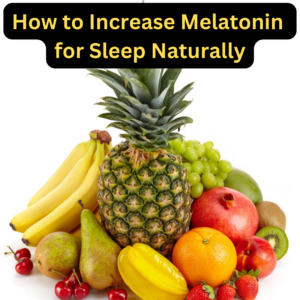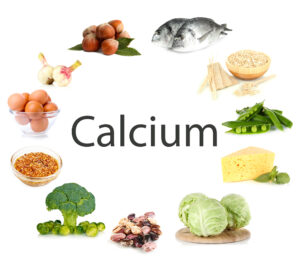 Getting a good night’s sleep is a satisfying, energizing, and vital part of a healthy life.
Getting a good night’s sleep is a satisfying, energizing, and vital part of a healthy life.
However, per the National Sleep Foundation, almost six out of ten Americans report having insomnia at least a few nights a week.
This article shares some proven natural remedies for falling asleep faster, sleeping longer and enjoying a better night’s sleep.
Melatonin is a natural hormone made by a gland in the brain that helps regulate the sleep and wake cycles. Researchers in recent studies have found that eating tropical fruits such as pineapples and bananas, as well as certain vegetables, can naturally increase melatonin in the body and help to improve sleep and remedy insomnia.
Melatonin levels start rising in the evening and go up to a peak level in the early hours of the morning, perhaps at around 2:00 or 3:00 a.m, and then it reduces. Melatonin production also declines with increasing age. This may partially explain why some people can sleep fine for a few hours and then suddenly find themselves wide awake in the night and unable to go back to sleep.
The research study showing how tropical fruits increase melatonin was published in the Journal of Agriculture and Food Chemistry. Thirty healthy volunteers ate one fruit at a time, with a one-week period left between fruits.
Significant increases in melatonin were observed after eating pineapple (a 266% increase), banana (180%) and orange (47%). The researchers made important discoveries about fruit consumption for those people with age-related melatonin deficiency symptoms such as sleeplessness and insomnia.
Eating more vegetables can increase melatonin levels in the body as well. Ninety-four Japanese women participated in a recent study. Half of the women ate high amounts of selected vegetables for 65 days, while the other half were told to avoid the same vegetables.
At the end of the study, the average daily intake of melatonin from eating the vegetables was significantly higher than the non-vegetable group. Another Japanese study tracked consumption of vegetables such as tomato, pumpkin, spinach, radish, cabbage, carrot, etc., and discovered that there was 16% more melatonin in the women with the highest vegetable intake.
Supplements of synthetic melatonin are made commercially in a lab. Because they often offer several milligrams per supplement, which is far more than the body makes naturally, common side effects of these supplements can include daytime sleepiness, dizziness, headaches, nightmares, anxiety or irritability. Melatonin supplements are usually only recommended for short-term use as they can inhibit the body’s own ability to manufacture melatonin.
In addition to fruits and vegetables, the brain can be assisted in its melatonin production by taking calcium supplements. William Sears, M.D. writes: “Calcium helps the brain use the amino acid tryptophan to manufacture the sleep-inducing substance melatonin. This explains why dairy products, which contain both tryptophan and calcium, are one of the top sleep-inducing foods.”
It’s important to note that a balanced ratio of calcium and magnesium, that uses twice as much calcium as magnesium, is important to overall health and that these two minerals should be taken together for best results.
Digestibility and absorption are important factors in selecting the best forms of calcium and magnesium to use. For example, Sleep Minerals II from Nutrition Breakthroughs is a natural insomnia remedy that contains highly absorbable forms of these minerals and it is effective for sleeplessness and insomnia, as well as for heart health, restless leg syndrome, bone strength, menopause insomnia and teenage insomnia.
Sleep Minerals II also contains vitamin D and zinc which are beneficial to immunity, and it’s delivered in a softgel form mixed with natural rice bran oil. This creates a creamy paste inside that makes it better assimilated than tablets or capsules and it provides a deeper, longer-lasting sleep.
Kimberly B. of Troy, Michigan says: “I have been taking Sleep Minerals II for about a month now. I have tried everything out there and this supplement is amazing. I have suffered with insomnia for 2 1/2 years. I have also had restless leg syndrome my entire life and this is the first relief I’ve ever had…gone for a month now.”
Richard P. of Parkville, Maryland says: “The Sleep Minerals are making quite a difference. I was regularly waking up at around 3:00 a.m. and after a few days of use my sleep improved quite a lot. I wake up once a night to go to the bathroom, but the great thing is, I then fall back asleep and sleep several more hours. This has been a great improvement.”
Fruits, vegetables and absorbable forms of calcium and magnesium are good remedies to increase melatonin in the body and help with better sleep. For more information, visit the Sleep Minerals II page.
Walnuts, almonds, tart cherries, tart cherry juice, nut butters, whole grains, kiwis, pineapples, bananas and oranges. Yogurt is also a good choice. Teas that help with sleep and relaxation include chamomile, lemon balm and passionflower.




